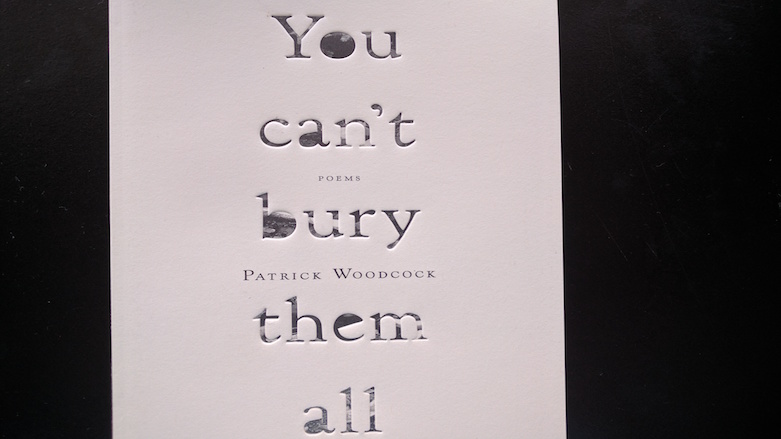Book review: You Can’t Bury Them All

LOS ANGELES, United States (Kurdistan24) – Reading You Can’t Bury Them All is like going on a journey with the poet, Patrick Woodcock, seeing people and landscapes of the otherwise estranged lands of the Kurdistan Region, Fort Good Hope, NT, Canada, a small aboriginal community in the Northwest Territories, and Azerbaijan.
The poetry collection, with its striking imagery and piercing language, allows the reader to see what locals see, be frightened or moved by what entices them, and hear voices that wake people at night, like that of the Kurdish propane tank which the poet describes as “an archive of apparitions, an urn of celestial ashes.”
Woodcock digs under the surface of objects and into the skin of locals. He presents to the reader not only what or who he sees but also “the shadows they cast.”
The collection confronts the borders, races, religions and whatever else manages to isolate human from human while exploring and bringing into focus all that connects us.
“Yan Kurdistan, Yan Naman” Kurdish for “Give me Kurdistan or Give me death,” is the title of the first section of You Can’t Bury Them All.
You Can’t Bury Them All is Woodcock’s ninth book and his second poetry collection that contains poems about Kurds.
Woodcock has been called an “almost Kurd” since he lived in the Kurdistan Region for over two years and was deeply engaged with the Kurdish culture, history and landscape. He is still active within the global Kurdish community and is working on an NGO called Canadians for an Independent Kurdistan.
But Kurds are not the only people Woodcock has immersed himself with. He was a volunteer with the elders of Fort Good Hope 20 kilometers south of the Arctic Circle for almost a year and taught in Baku for two years. His incredible power of empathy enables him to see the world from the point of view of various cultures and age groups.
“The cemetery’s headstones are scattered, misshapen—some are as small as the palm of my hand. Smaller than infants, some battered, some hidden, as if none ever mattered or walked on this land.”
The “I” contained within the poems of You Can’t Bury Them All is not always Woodcock but often a local whose perspective the poet is exploring.
In this book, “I” can be a man, a woman, a Kurd, an Azeri, or an aboriginal elder in Canada's north where he worked as a volunteer. It could also be a statue of a poet or a post-communist building falling to ruin.
The central theme of the collection is contained within the title. You can’t bury them all - not in the mass graves in Kurdistan, abandoned children’s cemeteries in Azerbaijan, not under the heavy snow of Canada's north, not by time, aging, neglect, homophobia or by trying to stifle protest and free speech.
“Let snow and what it blankets hearten not haunt you.”
Sprinkled with historical, cultural and geographical references of the three countries, You Can’t Bury Them All triggers one's curiosity by offering a myriad of powerful and profound images. This allows the reader to relish the initial poem before delving further into the geo-political complexity of its subjects.
The accompanying link to the book with the photos and captions can be helpful to enlighten the reader.
You Can’t Bury Them All by Patrick Woodcock
ECW Press, Toronto 2016
Reporting by Ava Homa
Editing by Karzan Sulaivany
